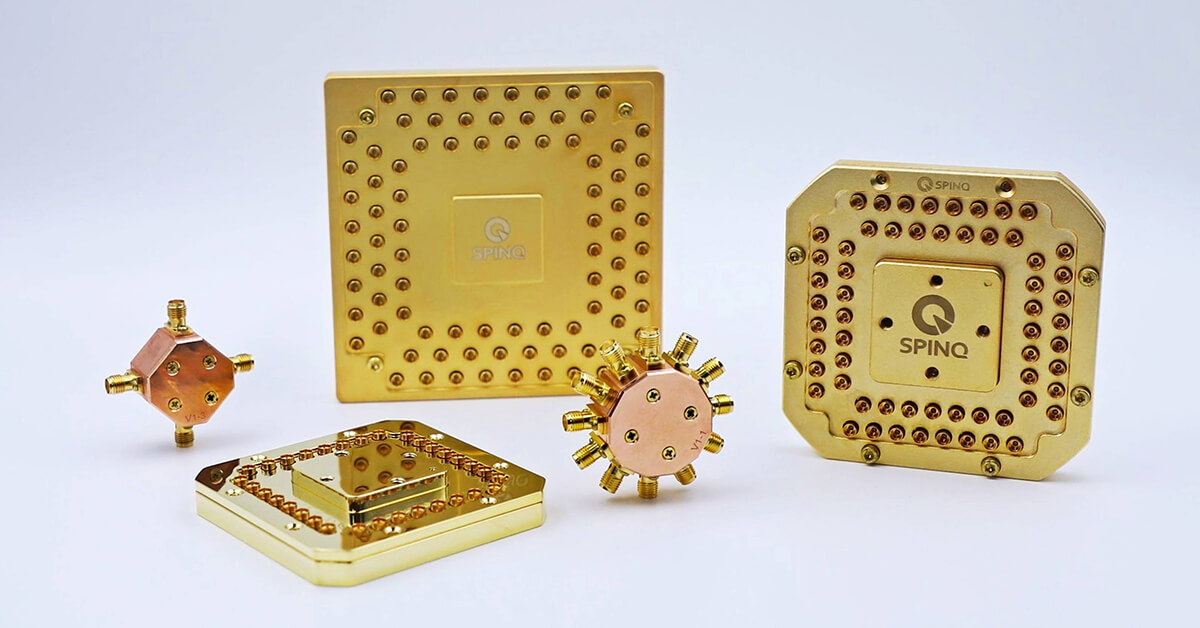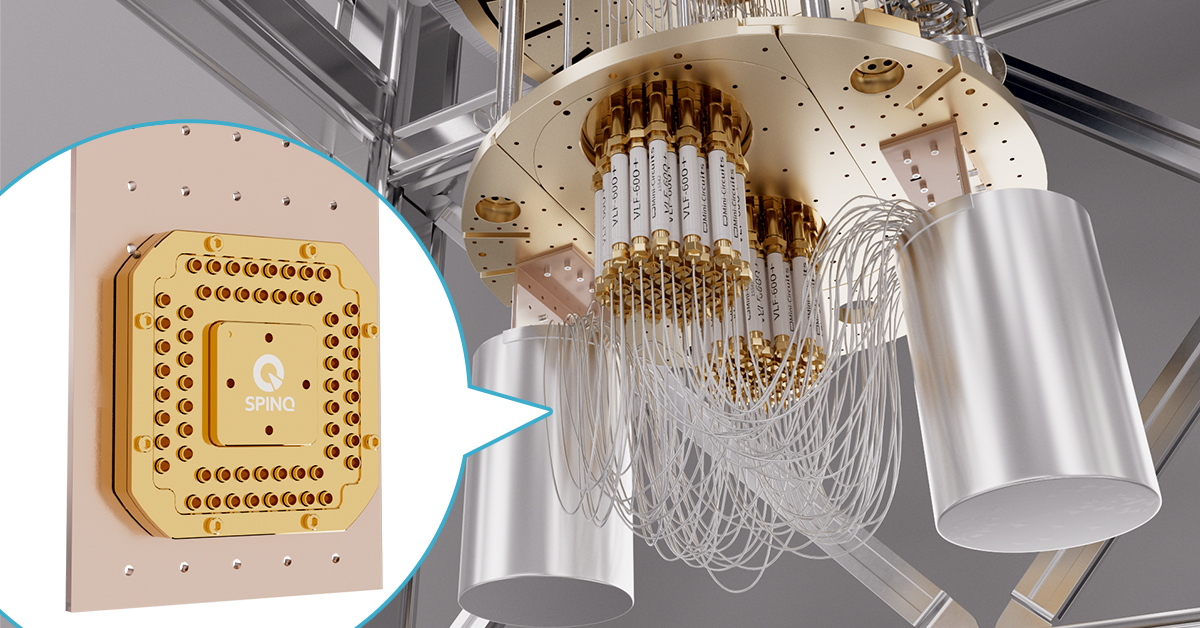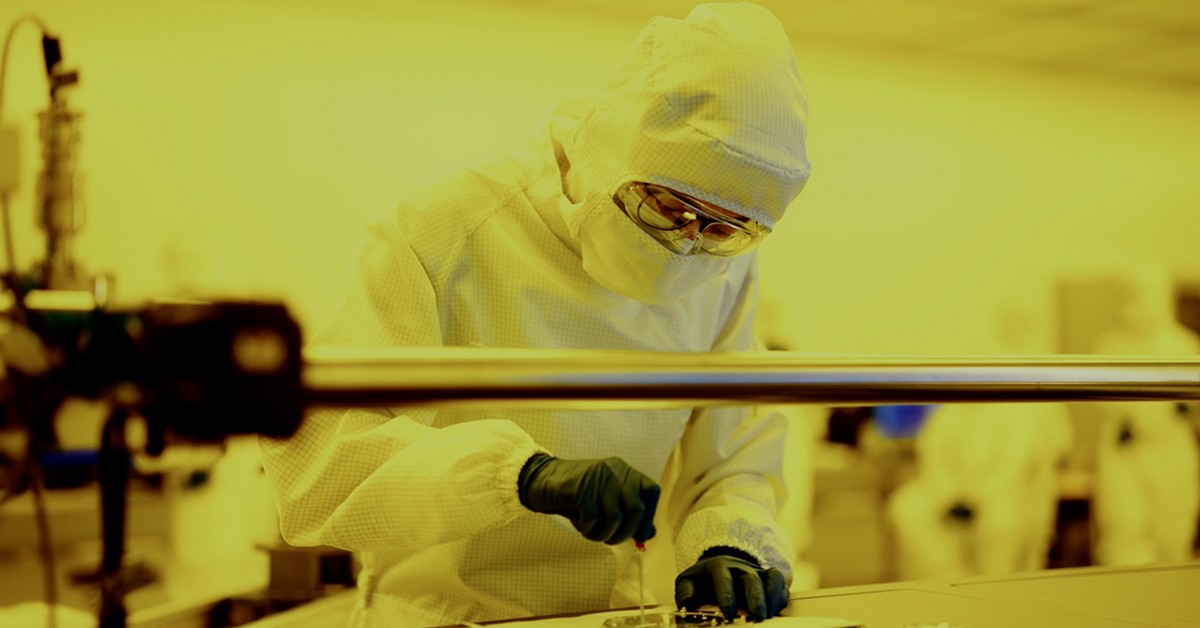What Is a Quantum Processing Unit (QPU)? Explained Clearly
2025.03.20 · Blog
Quantum computing is revolutionizing the field, offering breakthroughs that surpass the limitations of classical systems. At the heart of this transformation is the Quantum Processing Unit (QPU), also known as the quantum processor.
In this article, we will explore what quantum processing units are, how they function, their manufacturing process, and their impact on quantum research and industry.

What Is a Quantum Processing Unit (QPU)?
A Quantum Processing Unit (QPU) is the core computational component of quantum computers. Similar to how a Central Processing Unit (CPU) handles tasks in classical computers, a quantum processing unit leverages quantum principles like superposition to perform complex calculations with multiple states simultaneously, using qubits—unlike CPUs, which rely on binary bits (0 or 1).
Quantum processing units' exponential speed allows them to handle much larger datasets and perform calculations far more quickly than classical processors, making them invaluable for solving complex problems in quantum simulation, optimization, and cryptography. Their potential applications extend to fields like drug discovery, AI research, and secure communications.

How Quantum Processing Units Are Paving the Way for Quantum Computing's Future
Quantum processing units (QPUs) are powerful because they use quantum principles like superposition, where each qubit can represent both 0 and 1 at the same time.
Additionally, qubits can be entangled, enabling changes in one qubit to instantly affect another, even over long distances. This phenomenon, known as "quantum parallelism," allows multiple complex computations to be performed simultaneously, offering a significant speed advantage over classical computers for certain tasks.
Quantum algorithms take advantage of these unique properties to solve problems that are difficult or inefficient for classical computers, such as quickly factoring large numbers with Shor's algorithm or breaking cryptographic systems in much less time than classical machines.
Standard Quantum Processing Units (QPUs): Pre-Designed, Mass-Produced Quantum Chips
Standard Quantum Processing Units (QPUs) are pre-designed, mass-produced quantum chips built to uniform specifications.
They offer all-purpose quantum processing capabilities for researchers, developers, and businesses looking to explore quantum algorithms or implement quantum technologies without the need for customized quantum hardware solutions.
Standard quantum processing units (QPUs) typically feature fixed qubit configurations (e.g., 2, 5, 10, or 20 qubits) and topologies, such as 1D chains or 2D grids, which govern how qubits interact.
These quantum processing units (QPUs) are ideal for general quantum applications, offering high fidelity and long coherence times for accurate quantum calculations. Additionally, their scalability and reliability make them well-suited for universities, research institutions, and companies exploring quantum technologies.
How Quantum Chips Are Manufactured: Materials and Techniques Used in Quantum Processing Unit Fabrication
Manufacturing quantum chips involves a highly specialized process that combines precision engineering, advanced materials science, and quantum physics. Unlike traditional semiconductor chips that use silicon transistors, quantum chips rely on qubits, which are the basic units of quantum information.
Step 1: Select Qubit Technology
The process begins by selecting the appropriate qubit technology, such as superconducting qubits, trapped ions, or quantum dots. Superconducting qubits are most commonly chosen due to their scalability and compatibility with existing semiconductor manufacturing processes.
Step 2: Design Quantum Chip Architecture
After the qubit type is determined, engineers design the quantum chip's architecture. This design focuses on how qubits are arranged, how they interact in a controlled manner, and how quantum gates can be precisely applied and measured.
Step 3: Fabricate the Quantum Chip
The chip is fabricated using advanced nanofabrication techniques, often in cleanroom environments. For superconducting quantum chips, this involves layering and patterning superconducting materials on silicon substrates.


Step 4: Preserve Qubit Coherence
A key challenge in quantum chip manufacturing is maintaining qubit coherence, which is essential for quantum calculations. Qubits are extremely sensitive to external interference, including electrical noise, magnetic fields, and temperature fluctuations.
To minimize these effects, quantum chips often require operation at cryogenic temperatures, achieved through dilution refrigerators. Superconducting qubits, for example, must be kept near absolute zero to ensure stable quantum states.
Step 5: Test and Calibrate Quantum Chip
After fabrication, each quantum chip undergoes extensive testing and calibration. This step verifies qubit performance, coherence times, gate fidelity, and error rates. Continuous refinement is done to optimize performance.
Step 6: Integration into Quantum Systems
Finally, the tested quantum chip is integrated with control electronics, readout systems, and classical interfaces, forming part of a larger quantum computing system. These systems are then deployed for quantum research, algorithm development, and commercial applications.
The quantum chip manufacturer, like SpinQ, is continually refining techniques to improve the scalability, reliability, and performance of quantum chips.
Curious how superconducting quantum chips are fabricated? Watch this video to explore the fascinating process behind quantum chip manufacturing!
Performance Metrics of Quantum Processing Units: Fidelity and Coherence
Evaluating Quantum Processing Units (QPUs) performance involves two key metrics: qubit fidelity, which measures the accuracy of quantum operations, and coherence time, which indicates how long qubits maintain their quantum state.
Leading Quantum Processing Units (QPUs) achieve single-qubit gate fidelities exceeding 99.9% and two-qubit gate fidelities above 98%, ensuring precise operations with minimal errors.
Coherence times typically range from 20 seconds to 102 microseconds, depending on technology and design. These metrics are crucial for assessing the viability of QPUs in practical quantum computing applications.
Why Researchers and Industries Need to Purchase Quantum Processing Units
Researchers and businesses at the forefront of quantum innovation require quantum processing units (QPUs) to unlock the power of quantum computing. Despite quantum technology still being in its early stages, access to reliable, mass-produced QPUs allows researchers to test quantum algorithms, simulate quantum systems, and explore quantum phenomena hands-on.
Benefits of Quantum Processing Units for Academic and Industry Research
Quantum Processing Units (QPUs) offer significant benefits for academic and industry research, including:
1. Faster Problem Solving: QPUs solve complex problems more quickly than classical computers, aiding fields like cryptography, drug discovery, and financial modeling.
2. Quantum System Simulation: QPUs can simulate quantum systems, enabling breakthroughs in quantum mechanics and chemistry.
3. Optimization: QPUs optimize processes in logistics, energy, and finance by handling vast datasets more effectively.
4. Scalability: As quantum hardware evolves, QPUs handle larger datasets, crucial for big data research like genomics and AI.
5. New Algorithm Development: QPUs facilitate testing and developing new quantum algorithms, advancing quantum computing.
6. Cross-Disciplinary Impact: QPUs support research in AI, materials science, biochemistry, and quantum cryptography.
7. Cost-Efficiency: QPUs may be more cost-effective than traditional supercomputers for specific types of research.
8. Educational Opportunities: QPUs enhance quantum education, preparing students for future careers.
9. Industrial Innovation: QPUs drive innovation in fields like pharmaceuticals, aerospace, and energy.
10. Improved Security: QPUs support the development of quantum cryptography, offering enhanced data security.
In summary, Quantum Processing Units (QPUs) are transforming research across multiple sectors, offering powerful computational tools for diverse applications.
FAQs
Is a Quantum Processing Unit (QPU) the same as a quantum processor?
Yes, a Quantum Processing Unit (QPU) and a quantum processor refer to the same concept. Both terms describe the core hardware component of a quantum computer, where quantum computations are performed using qubits.
However, the two terms emphasize slightly different perspectives.
A quantum processor describes the physical device where quantum operations are performed on qubits, implementing quantum gates, algorithms, and measurements.
In contrast, A Quantum Processing Unit (QPU) is a more formal and system-oriented term, often used to describe not just the quantum processor chip itself but also its integration with control electronics, readout mechanisms, and the interface that allows classical computers to communicate with the quantum processor.
The term "QPU" is used by analogy to "CPU" in classical computing, highlighting its role as the core computational engine in a quantum system.
In most commercial and academic contexts, "quantum processor" and "QPU" are used interchangeably. However, QPU may sometimes refer to a more packaged, deployable unit beyond the raw quantum chip.
Featured Content






